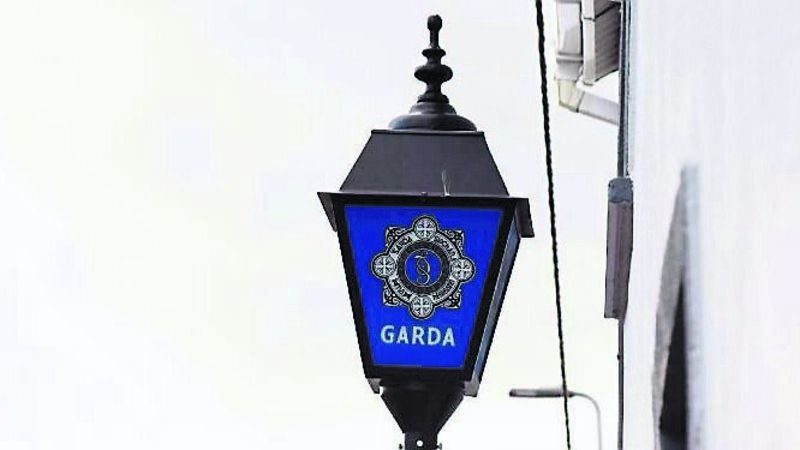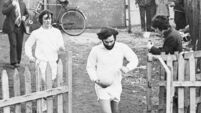Ailin Quinlan: Are the gardaí losing the streets?

Ailin Quinlan is concerned about garda response time and community policing.
It’s happened again. On this occasion, I was driving to work along the back road from the village of Enniskeane to the town of Clonakilty. It was just after 7.30am, on a warm, sunny May morning, and I was enjoying the drive along this winding rural road through the early summer countryside. There wasn’t much traffic at this time of day.
I drove with my window down. There was a nice breeze, birdsong, and then, Drew, came the whine. You know the whine. I know the whine. Everybody knows the high-pitched whine of the boy-racer car.
Usually, in rural areas, we hear that whine in late evenings or in the early hours, particularly at weekends when boy-racers come out like vampires to scream utterly unimpeded - as there appear to be no routine Garda traffic patrols out here. They roar through village streets with their silencers off, waking small children, racing to local crossroads and spinning around, leaving doughnut-ring scars and terrified motorists in their wake.
The morning being so quiet, I heard the whine from a distance away. He was far behind, but would catch up very quickly. Instinctively, I nudged the car closer to the edge of the narrow, meandering rural road.
All too soon the car was behind me. It paused momentarily as the driver saw I was going too slowly for his liking. Without a second’s hesitation, and on a sharp bend, he pulled out sharply and tore around me, straight out onto the other side of the road.
Come off it, I told myself. This is West Cork, not Central LA. All the same, I clicked the central locking system. I slowed down. I honestly didn’t quite know what else to do. Maybe the car had stopped for some reason other than to just menace me?
Doors locked, I drove reluctantly towards the car. Then, thank God, another vehicle came along. As soon as it appeared, the boy racer started up and screamed off into the distance again. Had he been scared off by potential witnesses?
“Were you completely mad?” my friend asked later. “Why did you flash him in the first place? He could have killed you.”
I told him my car was locked and I could have phoned the garda station if need be. My friend sniffed: “By the time they’d get to you, that fella could have beaten you to death. Even if you were ringing Clon’ station, you’d be put through to this Control outfit and you’d be still sitting there answering questions while your man came over and smashed in your window.
“The other thing is,” my friend added, “a lot of the guards aren’t local to the area any more so they mightn’t necessarily know exactly where you were. “Trust me. Your man would have had plenty of time to have a go at you and get away – and he knew it.”
I consulted John O’Brien,aman with a long, sterling policing pedigree - a retiredDetective Chief Superintendent, a former Head of the International Liaison Protection section in Garda HQ, and the National Head of Interpol and Europol. He was previously a Divisional Chief Superintendent in the Louth/Meath and Laois/Offaly Divisions.
John worked his way through the ranks from garda to sergeant, uniform inspector, detective inspector and superintendent. Along the way he earned an MSc in Public Order Studies. He is also the author of two books on policing, (2020) and (2022), and currently working on a third, due for release later this year.
Here’s how things should work, he explained: “Frontline uniform policing is a straightforward concept which rests on universally understood and well-worked principles.
“There are two simple strategies:
“1. Uniform foot patrolling, which involves meeting the community face-to-face.
“2. Mobile patrolling to cover wider areas, but the emphasis remaining, he explains, on the fact that Gardai would always understand the need to dismount and meet and greet the community. This, he observes, was admirably performed during the Covid pandemic.
“Both activities can be measured and evaluated - how many of these patrols are performed, daily, weekly, and monthly?”
This, John explains, is called Preventative Patrolling. And this, from what I see and from the comments made by the many people who contacted me in response to my columns on this issue, is what Irish pedestrians and entire Irish communities are currently lacking.
It’s a glaring, screaming absence.
John added: “The other aspect of normal policing is the reactive response, responding in real time to calls for public assistance. How long will the response take and by the way are response times monitored?”
The challenge for An Garda Siochana, he continues, is to respond. How a station, or a division can answer these questions is very illuminating, obviously. Is a local station so understaffed or systematically restrained as to be unable to perform these basic functions quickly in real time?
Well, I said, I had indeed phoned the garda station in Clonakilty recently to report two separate and potentially harmful incidents of anti-social behaviour which were taking place simultaneously in the town.
I was immediately put through to Garda Control, which was in a different part of the county or even the country, I’m not sure.
I was required, by the answering garda - who said he was not local and was not familiar with the layout of Clonakilty - to answer a comprehensive list of questions before any decision could be made on a response to my complaint.
Comments O’Brien said: “I am told that there is a very tedious system of logging calls for assistance by the routing of all calls to remote control centres and the ultimate dispatch of a response. This can result in long delays and frustration to all concerned including the Gardaí. Is this the true situation?”
Well, yes, John, I said, from my experience this certainly seems to be the situation.
“It is a fundamental rule of policing that if one loses the streets, one loses the confidence of the community,” he replied.
John believes the Garda Operating Model (GOM) is placing an enormous and unnecessary burden on operational gardaí of all ranks.
The consequence of this is that the public service (that is, the Garda ability to respond to calls for help from you, me and everyone else) is negatively impacted.
“Fundamentally,” he explained, “one needs a defined ‘spine’ in the organisation to meet the needs of regular everyday occurrences, including normal patrolling. Obviously, one cannot have a garda at every corner. Therefore, this requires a flexible approach by creating individual ‘temporary’ task-forces to accomplish specific objectives. These contingencies may relate to public order problems at the weekend where normal strength does not provide the numeric presence required.”
The thing is, every person who has voiced concern at the way Gardai respond to calls is justified. Because when someone with the depth and breadth of O’Brien’s policing experience at community, national and international level voices such deep concern about the Garda Operating Model as it stands, it should be a cause for serious concern and deep consideration on the part of Garda policy makers.
In essence, O’Brien says, “the Garda Operating Model does not comprehend the nature of normal everyday policing and the inestimable value of tailoring the service to local needs in a tangible and measurable way.”
His overwhelming concern, he adds, is that this method “represents an enormous, big-bang approach to delivering a policing and security service. It is without professional or intellectual robustness. It is essentially the idea of one person lacking in the basic understanding on the operation of a consensual policing service.”
It is clear to me that O’Brien believes the current policing response system, known as the Garda Operating Model, poses a significant threat to policing as we have known it in Ireland.
“The unitary model advocated by Commissioner Harris is very simplistic in its approach. It does not prescribe the policing norms expected. In any policing service, it would be normal and usual to provided details on some basic policing functions related to patrolling activity and uniform policing presence, measuring the response time to emergency calls.
“What are the overall national objectives? What are the regional or local variations on these activities? There is no mention of these matters in the Operating Model.
“Why not? It is obvious that several different models are required bearing in mind the obvious difference between location and environment.”
These, he explains, would be policing scenarios which must be individually tailored to the different policing requirements in different kinds of communities, for example, an Urban Model, a Rural Model, a Border Model, a Crime and Security Model, and a Contingency Model. Any change, O’Brien emphasises, should be incremental and phased in the policing service. But this hasn’t happened. The value of experience and tradition, he warns, has been totally disregarded. Enormous disruption has occurred as a result.
“I’m struck by the fact that the Garda is a service organisation with several million clients or customers,” he says adding that yet, in the information provided on the Operating Model, no reliance is placed on what the community wants.
“This omission is one of the classic scenarios mentioned in the literature where police approach problems by assuming they know the answers to the community needs without first asking.”
Now to the well-documented crises occurring in the Garda Siochana.
“There are significant issues relating to poor morale and major problems of retention and recruitment of Gardaí. These are industriil relations issues. It should not be taken as usual when Garda Sergeants and Inspectors march to the gates of Garda HQ, hold a meeting in public and hand in a letter of protest to the Commissioner. This is a very worrying development.
“The GRA and AGSI conferences strongly voiced their disapproval of current policies. It is understandable and perhaps desirable that there should be a healthy tension between staff representatives and management, but the current trajectory is not positive. Ultimately, all these matters can have an impact on public confidence in the Gardaí. This is indeed a very slippery slope from which recovery is difficult.”
O’Brien has a fairly simple request for these office-holders: “Please outline the policing model which you describe for the different scenarios mentioned already: i.e. Urban Model, Rural Model, Border Model, Crime and Security Model, and a Contingency Model.”
For example, he asks, what is the policing model which applies in Clonakilty (or any other town)?
“Do gardaí in these areas have the capacity to perform preventative foot and mobile patrols? What reactive capacity have you to deal with contingencies? Please expand your answer and avoid generalities.”
Are the gardaí losing the streets? Have they lost the confidence of the community? We, the community, think the answer is a possible yes.
Back to you, Drew.







 App?
App?




